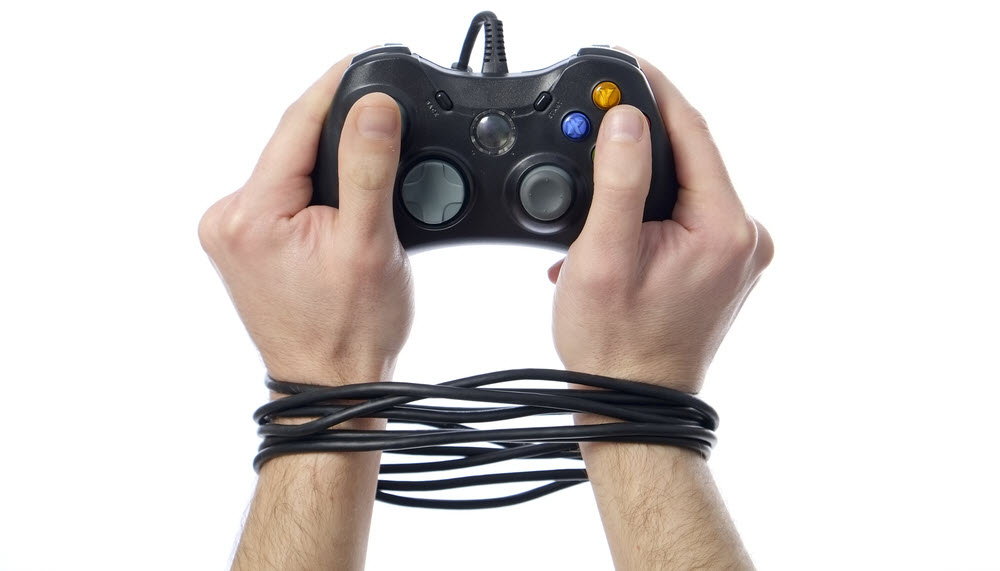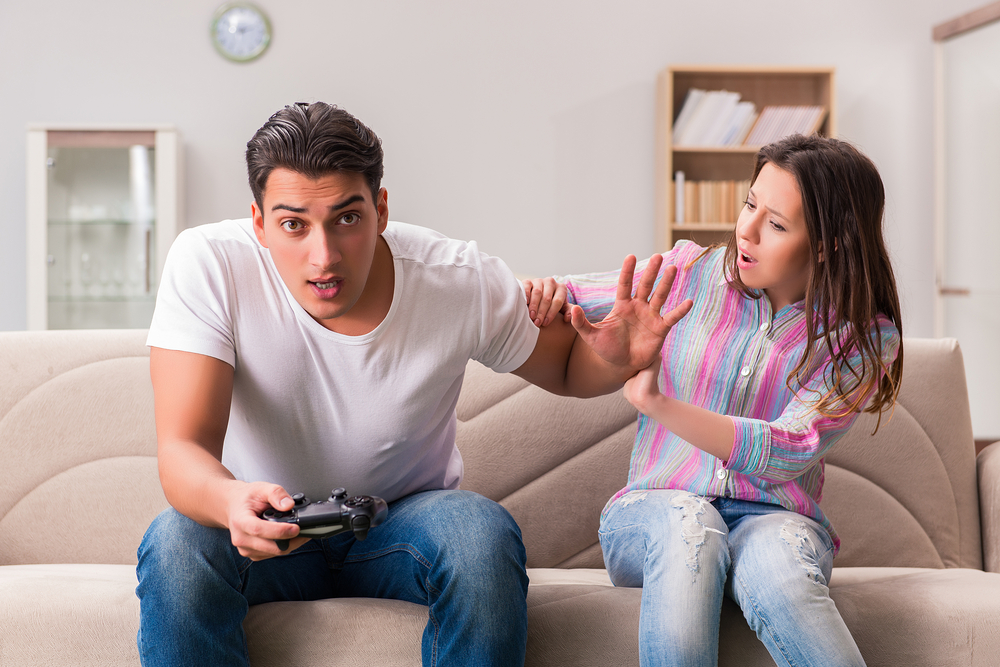Gaming Disorder Is Not Playing Around
July 22, 2019 - Reading time: 17 minutes
Video games have touched hearts and minds long before they became a part of modern culture. It seems like almost everyone has some sort of gaming console nowadays. Rather than those-who-game and those-who-don’t, categories have emerged to define and quantify gaming. From casual gamers to esports professionals and everywhere in between, gaming has become an interest for all, bridging age, race, gender, and every other divisive societal label.
However, there have been worries, especially with the prevalence of more mature and violent titles in popular gaming, that video games could be having ill effects on players health. This has mostly been contradicted by a number of studies showing that- generally- gaming increases hand-eye coordination, logical reasoning, spatial thinking, and team building skills. Many popular games heavily feature co-op, or coordinated operation, meaning players can join up with friends or even total strangers to complete common goals.
So why do they have a disorder named after them?
What is ‘Gaming Disorder’?
As of 2019, the World Health Organization has added ‘Gaming Disorder’ in the 11tth revision of the International Statistical Classification of diseases. As of their definition, ‘Gaming Disorder’ is “a pattern of gaming behavior (“digital-gaming” or “video-gaming”) characterized by impaired control over gaming, increasing priority given to gaming over other activities to the extent that gaming takes precedence over other interests and daily activities, and continuation or escalation of gaming despite the occurrence of negative consequences.”
That’s an impressive paragraph-long sentence, but what does it mean?
It means that ‘Gaming Disorder’ is what happens when games come first, above all else. When your anniversary dinner with your spouse is less important than finishing this level, "Just really quick, one more level; yes honey, I promise." When you forget your son’s soccer game and your partner has to show you the video on their phone of his winning goal. "I’ll be there next time, Champ; I swear." When you don’t eat or drink or sleep for days, because you just have to keep playing. When you skip work, miss out on non-gaming ‘real life’ activities, all for the sake of the glory of the win.
Is Gaming Addictive?
Yes. And no. Maybe.
Does this mean that video games are inherently addictive and dangerous? Should we be turning in our consoles, trashing our controllers, and deleting those time-consuming mobile apps that make our forty-minute wait in the doctor’s office bearable? The pros and cons of gaming are still heavily under debate, with each side holding on fast to their respective opinions and studies.
Most gaming is designed to be an immersive experience. It rewards the brain with pleasure chemicals called ‘dopamine’ for reaching milestones or making certain achievements. It can create a hard-wired reaction expecting instant gratification. Plus, modern games are very social, creating a network of people, perhaps even friends, which persists entirely based upon continued play of a particular game. It’s excellent strategy on behalf of a multi-billion dollar industry, but will casual gaming inevitably lead down the road to addiction?
As far as the diagnosis of ‘Gaming Addiction’, not all game-play qualifies. It is when that behavior begins to cause problems and interference with daily life, when it becomes a compulsion, that is when the term ‘addiction’ can be considered. Crushing some candies on your phone while you wait for your turn at the Motor Vehicles office is probably perfectly safe. Trying to stomp your friends with iconic characters is likely fine too. Even going on spanning epic quests to save the world likely won’t suddenly render you an addict.
So then, what does? Where is the line?

Signs of Addiction
Some potential signs have been discussed above, but the American Psychiatric Association lays out nine distinct criteria to look for when assessing whether or not you or someone you love might be suffering from Gaming Disorder.
- Pre-occupation
- When you aren’t gaming, do you think about it? Do you think about it a lot? Do you spend time planning what to play next, or counting down until you can play again?
- Withdrawal
- When you aren’t gaming, do you feel withdrawal symptoms? Restlessness or moodiness are two common indicators, but also included often are anger and anxiety. Do you feel these regardless of whether you are choosing to game less or whether circumstances prevent you from gaming?
- Tolerance
- Do you need the newest system right now? Do you have to get the hottest new console or games on the day they release? Do you have to complete a game to 100% for complete gratification and satisfaction? Do you need to play more and more and more?
- Reduction
- Do you know you should play less, but find yourself unable to? Do you try to stop or cut down, and inevitably find yourself drawn in time and time again?
- Other Activities
- Has your interest in other hobbies or fun activities waned? Do you get less enjoyment out of reading, despite being a life-long bibliophile? Do you eat out every meal because it’s faster, despite a fondness for cooking?
- Continuation Despite Issues
- Has gaming brought negative consequences to you or your loved ones, but you persist in it nonetheless?
- This is the sign discussed earlier, as it is the most evident to those outside yourself. Often consequences due to gaming come from other people, like worried spouses, angry bosses, or disappointed children.
- Has gaming brought negative consequences to you or your loved ones, but you persist in it nonetheless?
- Deception
- If your loved ones (friends, family, etc) ask about your gaming, do you lie about how much you game? Do you feel guilty about the amount of time you spend gaming?
- Escape
- Is gaming something you use to escape personal problems? Do you avoid encountering unpleasant feelings by focusing on gaming instead?
- Risk/Lose Relationships/Opportunities
- Have you risked losing a relationship or job opportunity because of gaming? Has a significant other left you because you ‘game too much’? Have you missed so much work due to your need to game that you were terminated?
If you can say ‘yes’ to at least 5 or more of these questions, the American Psychiatric Association recommends that you are formally evaluated for video game addiction.
What Is At Risk?
Aside from relationships and opportunities as outlined in item 9 above, there are other dangers associated with ‘Gaming Disorder’ as well. However, it is not determined whether these are symptomatic or pre-existing. This means that scientists just don’t know if someone has Depression because they have Gaming Disorder, or if they had Depression prior and it made them more susceptible to develop Gaming Disorder. Both Depression and Gaming Disorder are difficult to test for, and there is no proof that the correlation has anything to do with causation. Similarly, additional complicated relations include other mental disorders, like anti-social behavior, social anxiety, and generalized anxiety.
Physical complications are easier to detect and test for, however. Deep vein thrombosis can develop from prolonged sitting, as can pulmonary embolisms. Gaming is an activity most often done while seated, and thus many hours spent gaming can increase these risks, while still not being solely responsible for the results.
The Bottom Line
Those risks are serious and scary, but there is good news. Gaming Disorder affects only a very small portion of people, and most gamers are not addicted. The World Health Organization asks gamers to be wary of their health and aware of their behavior, and to watch closely for any of the aforementioned signs.
But for now, there’s no need to delete your mobile games or curse at imaginary Italian plumbers. Video games, like most things, are perfectly safe in moderation, and can be a fun, challenging, rewarding experience when used positively. Video games can expand imaginations, and give us a chance to explore worlds that are impossible in reality. As long as we remember, then, to return to that reality and keep our priorities in check with responsible gaming, most people need not worry about addiction and Gaming Disorder.
